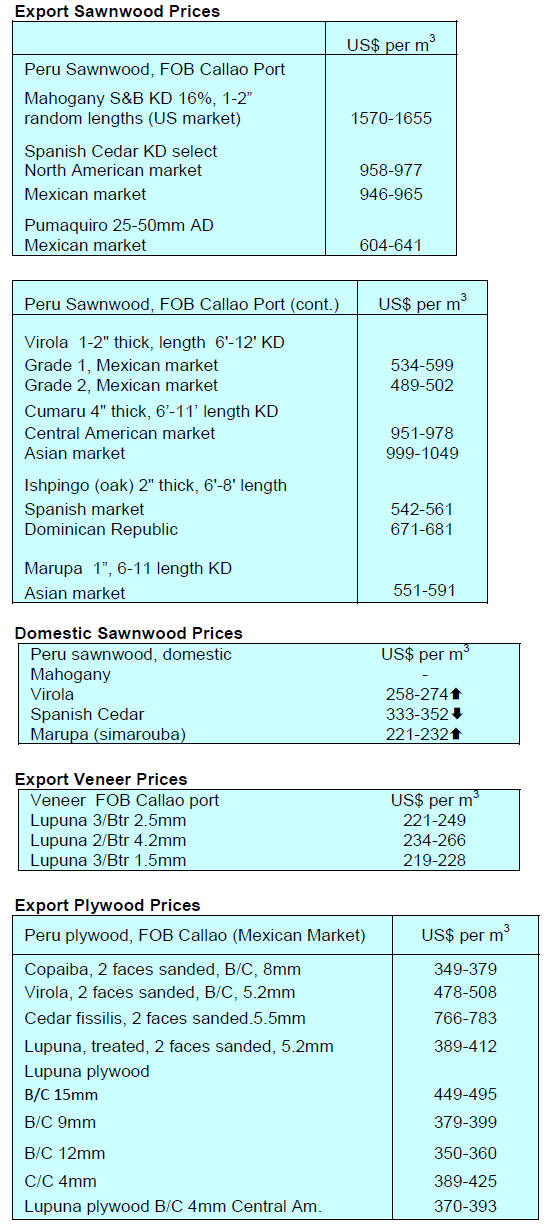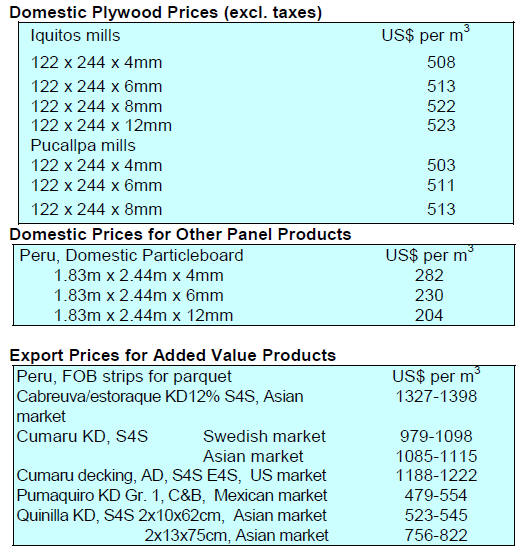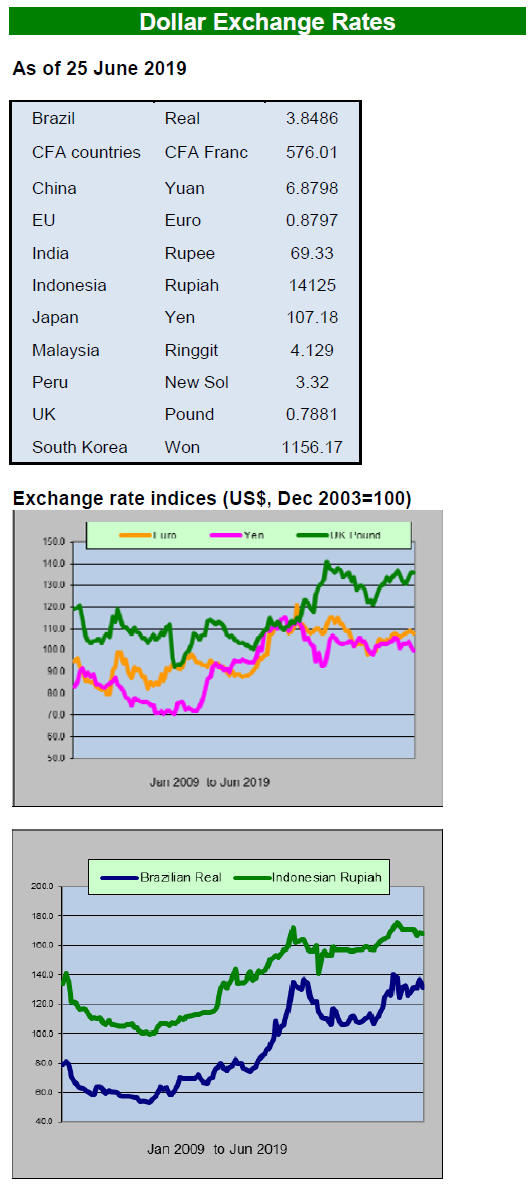3.
MALAYSIA
ASEAN determined to conclude
Regional
Comprehensive Economic Partnership
Leaders of the Association of Southeast Asian Nations
(ASEAN) are determined to conclude the Regional
Comprehensive Economic Partnership (RCEP) this year
according to the chair of the recently concluded 34th
ASEAN Summit held 23 June in Thailand.
“All member states agreed that the RCEP is important for
this region because of the uncertainty of the world
economy. The partnership will be an important strategy to
drive members’ GDP growth and attract investments to
ASEAN”, said Thai chairperson, Lt. Gen. Werachon.
The RCEP comprises all 10 ASEAN members plus China,
Japan, South Korea, India, Australia and New Zealand
which have a combined population of 3.56 billion, with
trade worth US$10.3 trillion or 29% of the world’s trade.
For more see
https://www.bangkokpost.com/business/1699944/aseanleaders-
back-thai-push-for-rcep-deal
Development of commodities sector the focus of
government
The Federal Government intends to focus on expanding
the commodities sector of the economy (including timber)
according to the Minister of Primary Industries. To
support this the ministry is seeking a bigger budget
allocation under the 12th Malaysia Plan (2021-2025).
Minister, Teresa Kok, called on players in the
commodities sector to come with proposals for increasing
output as this, in turn, will boost government revenues.
Sarawak to maintain forest cover
Sarawak Chief Minister, Abang Johari Tun Openg, said
the State government would continue to maintain the 63%
forest cover in the state because of the important role the
forestry sector has in the State.
He said the government has a very clear land use policy
under which six million hectares is permanent forest
reserves while another one million hectares is totally
protected areas.
He added that the State government would implement
policies to restore and regenerate degraded forests,
including swamp forest using indigenous tree species. He
also said the government would allocate funds for forestry
R&D and work with the private sector to further develop
Sarawak’s forestry resources in a sustainable manner.
In related news, the Sarawak Forest Department Director,
Hamden Mohammad, said his Department had planted an
area of 528,238 hectares covering hills, swamps and
coastal area forests in collaboration with various
stakeholders.
Seeking new markets and raw materials – MTC to open
new offices
Richard Yu, the Malaysian Timber Council (MTC) CEO
has stated that the MTC will open regional offices in
Houston and Rotterdam to promote Malaysian wood
products and to help Malaysian companies source raw
materials. The Rotterdam office is set to open in mid-year
while the Houston office could be operational in the
second half of the year.
Yu said the European office would cover the Middle East
and African countries adding that the function of the new
offices will be aligned to widen MTC’s access to niche
markets and new raw material sources.
In a related development Yu announced that the function
of the MTC office in Bengaluru, India will be expanded to
cover South Asia while the MTC office in China will now
cover East Asian countries such as South Korea, Taiwan
(P.o.C) and Japan.
Sabah working with NGOs to restore forests
The Sabah Chief Minister, Mohd. Shafie Apdal, said to
enable the sharing of expertise in planting local species,
the State, through the Sabah Foundation, would support
non-government organisations (NGOs) in carrying out
activities to conserve the forest areas in the State.
In November 2012, the Sabah State government and the
Tropical Rainforest Conservation and Research Centred
(TRCR) signed an agreement on cooperation towards the
sustainability of the forest in Sabah. TRCR is an NGO
which was entrusted to protect the Dipterocarp tree species
in Sabah through reintroducing it to its original habitat.
Plywood prices
Plywood traders based in Sarawak reported the following
June export prices.
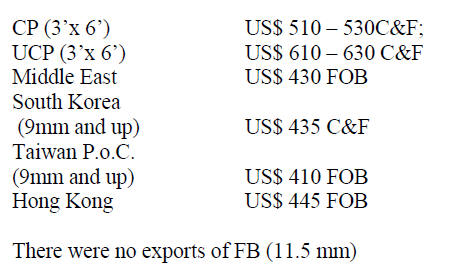
4.
INDONESIA
Government sees opportunities
in trade conflict –
offers to help exporters
President Joko Widodo recently met with business leaders
to offer government assistance to local industries trying to
secure opportunities created by the ongoing trade conflict
between the US and China. He told members of the
Indonesian Chamber of Commerce and Industry (Kadin)
and the Indonesian Young Entrepreneurs Association
(Hipmi) that efforts must be focused on economic matters
now that the election is over.
He called on the business community to offer policy
suggestions which would help the country benefit most as
there are opportunities in the electronics, textile and
furniture markets in the US.
Permanent moratorium on forest clearing
Forestry and Environment Minister, Siti Nurbaya Bakar,
has indicated her preference to permanently maintain the
ban on forest clearing for oil palm plantations.
Since 2011, there has been a moratorium on clearing
covering more than 60 million hectares of primary forest
and peatland in an effort to reduce emissions from fires
caused by deforestation. Every year fires break out on
peatland forests drained for agriculture.
See: https://www.eco-business.com/news/indonesia-to-fixtemporary-
ban-on-new-forest-clearing-for-plantations-andlogging/
Responding to the comments by the Minister the
Association of Indonesian Forest Concessionaires (APHI)
agreed with suggestion of a permanent moratorium saying
the existing production forest area for timber production is
enough if it managed well. At the same time, once again,
APHI asked the government to allow the export of
planation logs and wood chips to help address the
country’s trade deficit.
Indroyono, speaking on behalf of APHI, said the shortterm
solution to Indonesia’s trade deficit is to optimise the
use of natural resources and encourage exports.
He pointed out that in meetings with South Korean
companies there was great interest shown in securing raw
material and chips from Indonesia as they do from
Vietnam.
Platinum Teak – 30cm in 5 years
‘Platinum’ teak, developed by the Indonesian Institute of
Sciences through tissue culture, can become the mainstay
of Indonesia’s furniture exporters because ‘platinum’ teak
is different from other teak say analysts. Platinum teak has
been found to grow to a diameter of 30 cm in just 5 years.
See:
https://economy.okezone.com/read/2019/06/23/320/2069822/kay
u-jati-platinum-andalan-baru-ekspor-furnitur-indonesia
Expansion of customary forests held back by land
rights issues
The Ministry of Environment and Forestry is targeting the
establishment of Customary Forests to provide income
sources and employment in rural areas. The Minister, Siti
Nurbaya Bakar, said the process of establishing such
forests will likely be lengthy as many stakeholders are
involved.
Siti said her Ministry took the initiative to determine the
area of customary land so that the establishment of
customary forest areas can be undertaken. The area
targeted consists of around 380,000 ha. of State Forest,
Other Use Areas covering 68,935 hectares and existing
Customary Forests of 1,950 hectares. Activities will be
undertaken initially in Sumatra, Java Bali Nusa Tenggara,
Kalimantan, Sulawesi, Maluku and Papua.
In related news, according to government officials efforts
to hand back control of customary forests to indigenous
people is being hampered by overlapping land claims for
mines, plantations, forests and public land.
The Indonesian President vowed to return 12.7 million ha.
of land to indigenous people following a historic 2013
court ruling lifting state control of customary forests but
land rights activists say the progress has been is slow
because of boundary issues.
Prabianto Mukti Wibowo, Assistant Deputy Minister for
Forest Governance in the Ministry, said there are too many
maps. Apparently there are 85 thematic maps for forestry,
mining, plantations and customary forests, many with
overlaps which need to be reconciled on the ground.
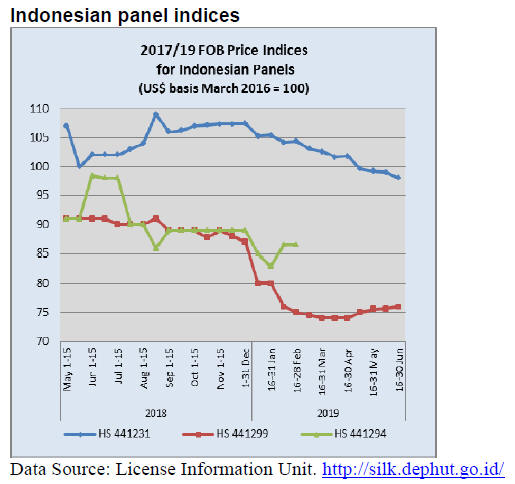
5.
MYANMAR
Myanmar, 51st PEFC member
The Myanmar Forest Certification Committee (MFCC)
and PEFC International have announced the conclusion of
PEFC membership for the MFCC. The MFCC is the
latest and 51st national member of the PEFC Alliance said
Ben Gunneberg, CEO of PEFC International.
Under a banner headline: “Myanmar’s forests gain
visibility through PEFC membership” the PEFC CEO said
“It is great to see that the collaboration with MFCC has
been successful and has already led to the acceptance of
Myanmar as a member. We are collaborating with MFCC
on a three-year project to support the country as it
transitions to the sustainable management of its forests.
The project is co-funded by the Prince Albert II of
Monaco Foundation.
See: https://www.pefc.org/news/myanmars-forests-gainvisibility-
through-pefc-membership
Commenting on this significant step, Barber Cho,
Secretary General of MFCC, said “Forest management is
not a matter of one country or one region anymore it is a
global issue”.
He continued “By becoming a PEFC member, we send a
message to the world and show our commitment to
sustainable forest management through an internationally
recognised system”.
However, this is just the beginning said Cho who reemphasised
MFCC’s aim of establishing a fully
operational national forest certification system in line with
PEFC standards within a few years.
Certification and sustainable forest management are of
special importance in Myanmar. In the last thirty years,
forest cover in Myanmar has fallen from 60% to 40%.
A sharp decline in forest cover was seen in the period
when forests in Myanmar were exploited for quick
economic returns rather than long-term sustainability,
explained Cho.
Cho stressed that forest resources are of enormous value
for the people of Myanmar as many in the country are
heavily dependent on forests for their basic needs. In
meeting these needs Cho stressed the participation of civil
society groups who can contribute to the development of
forest management systems.
To move forward with CSOs in the country there are
several challenges, one of which is the financial strength
of the MFCC.
At present no forest in Myanmar is certified to any
certification system and the forest are administered and
conserved by Forest Department through Work Plans.
Log harvest target revisited
On 21 May 2019, the Permanent Secretary of Ministry of
Natural Resources and Environmental Conservation said
that log extraction will be reduced gradually. It was
proposed that teak log harvests will be 10,000 tons in
2019-20, 8,000 tons in 2020-21 and 6,000 in 2021-22. For
other hardwoods harvests will be 300,000 tons in 2019-20,
250,000 tons in 2020-21 and 220,000 tons in 2021-22.
Issue of ‘CoC Dossier’ unresolved – causing major
problems for exporters
During the past seven months of the current budget year
the export of forest products was valued at US$102
million. Myanmar exporters are facing tough times in the
international markets especially the EU where the EUTR
is impacting market access.
Exporters complained that EU buyers continue to refer to
the so-called ‘CoC Dossier’ and demand many documents
to verify the legality of shipments some of which are not
readily available as most of the documents are held by
district offices. This issue would be resolved when all
information related to each harvest was computerised, this
is currently being piloted.
Exporters are anxious that third party certification should
be in place as soon as possible so they can maintain
exports to international markets.
The ‘CoC Dossier’ was compiled at the beginning of this
year by Ministry of Natural Resources and Environmental
Conservation merely to demonstrate the multiple steps
along the supply chain from the pre-harvest planning to
the shipment. It was never intended that all documents
identified along the supply chain in the Dossier would be
provided to overseas importers.
Production costs set to rise as power charges raised
The government has announced a significant increase in
electricity prices from July but will retain some subsidies
in an effort to protect low-income households.
The increase announced in state media is the first price
hike since 2014 and will help to reduce electricity
subsidies that have ballooned to K630 billion in the 2018-
19 fiscal year and were expected to hit K1.5 trillion
annually if prices remained unchanged. Industry,
businesses, government offices, embassies and
international organisations will be charged substantially
more.
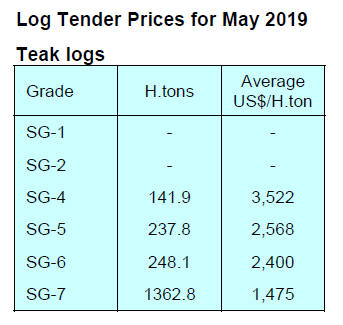
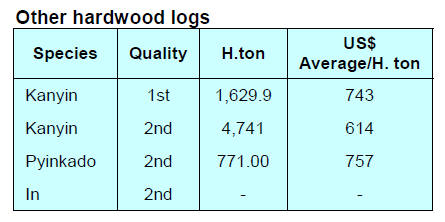
6. INDIA
A boost to the ‘Green Building
Movement’ in India
The Confederation of Real Estate Developers’
Associations of India (CREDAI) has signed a
memorandum of understanding (MOU) with the Indian
Green Building Council (IGBC) to accelerate the push
towards the Green Building Movement in the country.
The MOU will also see the two organisations come
together and construct green building projects in five
cities. By joining forces, CREDAI and the IGBC intend to
collaborate and share knowledge and extend industrial
support to reinstate the importance of constructing
environmentally friendly buildings for sustainable growth
of the Indian real estate sector.
See press release at :
https://credai.org/press-releases/credai-signs-mou-with-igbc-toaccelerate-
green-building-movement-in-india
Calls for re-think of Forestry Act 1927 amendments
Less than a month after the Bharatiya Janata Party (BJP)-
led National Democratic Alliance government was sworn
in for a second consecutive term parliamentarians are
calling for a rethink on the draft amendments to the Indian
Forest Act, 1927. Principal among the concerns is that the
National Forest Policy should be agreed before any
amendment to the Indian Forest Act of 1927.
The parliamentarians avoided commenting on the draft
amendment which is controversial because it would
classify commercial plantations as forests and because the
amendment would authorise state governments to relocate
people living in areas of forest where development or
conservation efforts would be directed.
Plantation teak imports
Analysts report signs of change amongst teak importers. It
appears that many importers are gradually beginning to
see a business advantage in importing durable hardwood
alternatives to teak.
Behind this change is the continuing weak demand for
teak products and the financial burden of rising production
costs and the high tax rates. To help reduced transaction
costs concerted efforts are being made by importers’ to
ease the advance payment requirements demanded by
exporters.
While the rupee/US dollar exchange rate favours
importers, African and Central American shippers are
trying to attract buyers but market conditions are working
against any immediate increase in imports.
C&F prices teak at Indian ports from around the world are
shown below.
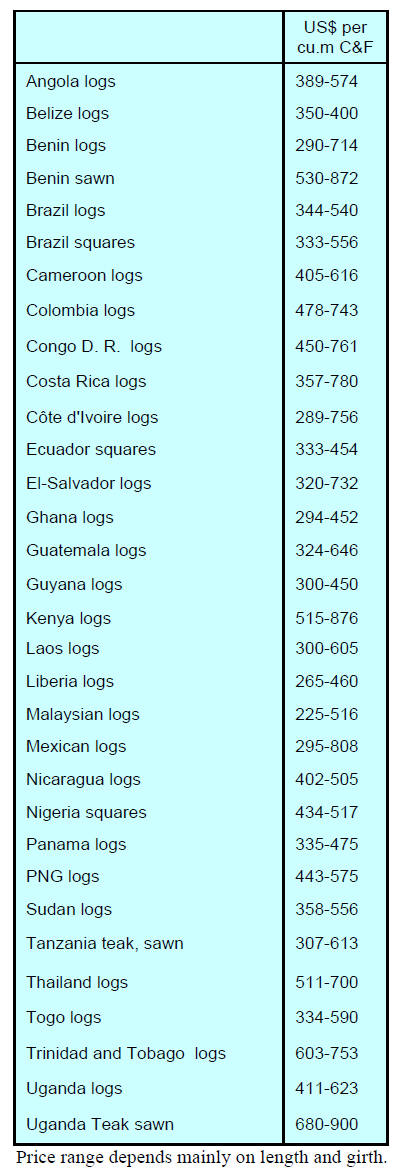
Locally sawn hardwood prices
Imports of tropical sawn hardwoods as well as softwood
are steadily rising as manufacturers find the quality, kiln
drying and ease of processing more profitable than from
using domestic sawnwood.
Malaysia continues to be major supplier of sawn tropical
hardwoods to India. Import prices have not changed for
the past few months being held down by weaker demand
in other markets affected by the US/China trade conflict.
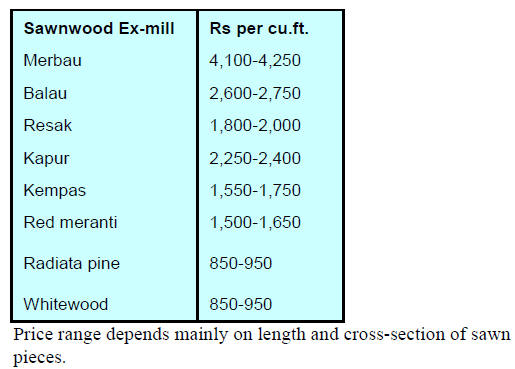
Myanmar teak prices
The steady demand for Myanmar teak has consolidated the
recent ex-yard price increases.
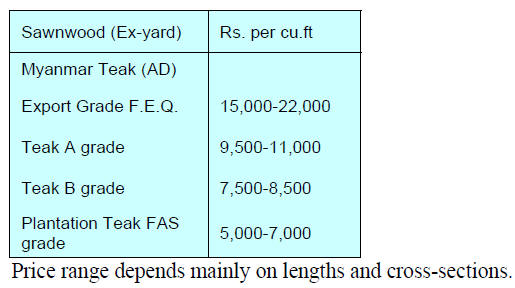
Sawn hardwood prices
The recent ex-warehouse price increases for European and
N. American temperate hardwoods and softwoods remain
unchanged.
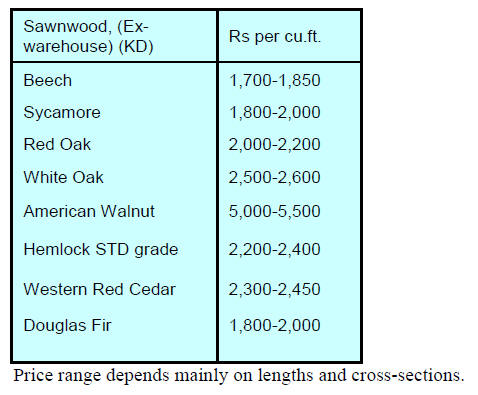
Plywood prices
Rising log and other raw material input costs ares causing
headaches for plywood manufacturers and is driving down
profit margins. Against the backdrop of dull market
conditions there are no opportunities to raise prices.
In recent months some millers have reported a shortage of
labor and this has resulted in cuts in production at some
mills.
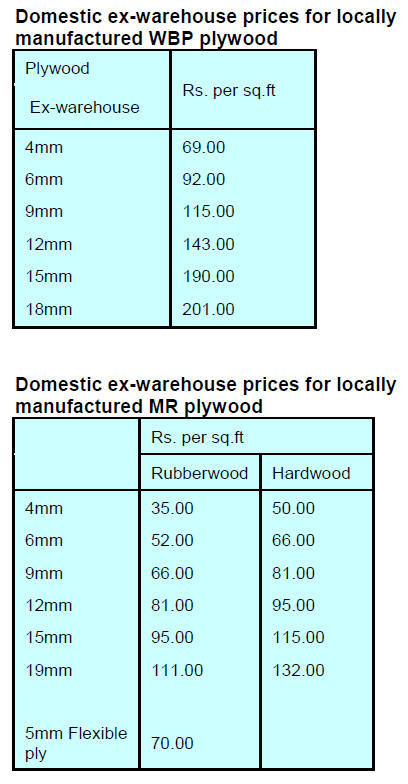
Bamboo can substitute for wood in some
end-uses
At the recent World Bamboo Workshop 2019 the
Executive Director of World Bamboo Organization
(https://worldbamboo.net/) Susanne Lucas called for more
use of biodegradable products such as bamboo.
She also announced that WBO and government of
Manipur, through the Chief Minister will be signing the
Damyang Call Imphal Reiteration, ‘to recognize the
essential contribution of bamboo in the fight against
climate change, to free bamboo from the restrictions of
outdated national forestry codes to stimulate social and
economic developments and to support research, exchange
knowledge and improve communication on bamboo
development for the sake of all humanity’.
Analysts write “Bamboo harvests can substitute for wood
in some end-uses and the growing of bamboo on fallow
farm land can provide an income for farmers and the
processing and manufacture of bamboo products generates
employment.” The north eastern areas of India produce
large quantities of bamboo and is important in regional
economies.
See: https://worldbamboo.net/news-and-events/world-bambooworkshop/
significant-results-with-the-government-of-manipurwbw
7.
VIETNAM
2018 timber imports almost 10
million cubic metres
Vietnam is increasing its imports of primary wood
products, especially hardwoods, from over 100 countries
to meet the demands of the rapidly expanding processing
sector in the country.
In 2018, Vietnam’s wood processing industry imported the
roundwood equivalent nearly 10 million cu.m of timber
that provided around 25% of the total input required by the
domestic industries. The value of this wood raw material
was US$2.34 billion in 2018 up by 7% compared to 2017.
The EU-Vietnam VPA/FLEGT is to be implemented soon
according to analysts who say this is expected to generate
many export opportunities for domestic manufacturers.
However, implementation will challenge the sourcing of
wood raw materials as Vietnam still depends on imports
from so-called ‘high-risk’ countries in terms of
verification of legality.
Most of Vietnam-made finished wood products are
exported to developed markets such as the USA, EU,
Japan and South Korea so must meet the legal and
technical requirements in these countries. This can be
achieved by utilsing domestic planation material such as
acacia, eucalyptus and rubberwood and importing verified
legal timber raw materials.
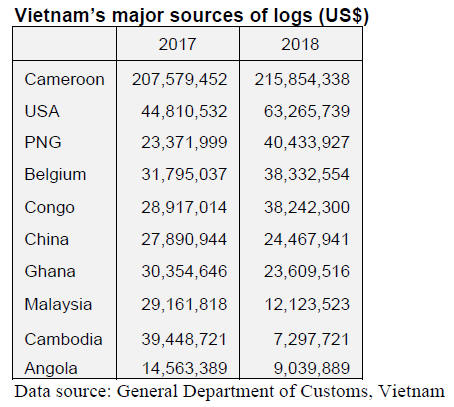
Among the top 15 raw wood supplying countries there
are
7 high risk sources in terms of legality and these currently
account for a high proportion of Vietnam’s timber imports.
The implementation of the VPA will also impact imports
of high value precious species used mainly for domestic
consumption and imported from countries with weak
forest management and law enforcement.
Sourcing high value species a challenge
The Vietnamese timber sector is facing to a serious
shortage of logs and sawnwood due first to the domestic
logging ban and secondly to the various restrictions and
regulations on raw material exports in many nearby Asian
supply countries such as Laos, Cambodia and Myanmar
which were once major suppliers of tropical timber for
Vietnam. The table below shows the change in import
values for three major suppliers to Vietnam.
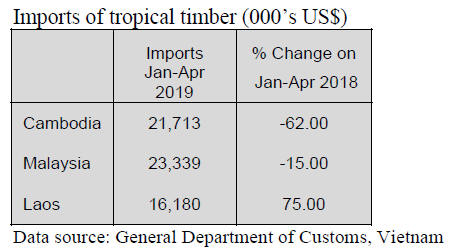
High import prices threatens competitiveness
of
Vietnamese companies
Over the past few years there has been a rise in raw
material imports from the US, the EU and some African
countries but the Vietnamese industries complain the CIF
prices are very high and there are high logistics costs and
that this is threatening the competitiveness and
productivity of the Vietnamese companies in international
markets.
The industry is now relying more heavily on domestic
plantation resources for both exports and for domestic
sales.
8. BRAZIL
Sound environmental practices of the
forest sector in
the Amazon
With the aim of strengthening the credibility of the
Amazon timber trade Unifloresta, the Amazon Forest
Productive Chain Association, has created a system to
verify environmental practices.
Unifloresta was founded in 2009 by a group of
entrepreneurs with the objective of supporting the
economic development of the forest sector; representing
and protecting the rights and interests of its associates and
collaborators and unifying forest preservation and
environmental sustainability.
Unifloresta comprises a multidisciplinary team in
partnership with Uniconsult and the environmental law
firm Murilo Araujo. It comprises lawyers, foresters,
environmentalists, civil engineers, geologists, biologists
and lawyers who provide technical environmental services
and legal advice, contributing to a better performance of
the members.
See:
https://www.unifloresta.org.br/
The early experiences in implementing the system were
presented during the Innovative Ideas for the Wood
Construction Chain event promoted by Núcleo da
Madeira”, a non-profit initiative of representatives of
several sectors of the wood construction sector.
Through mobile tracking, data such as timber transport
documents, machinery inventory, driver and truck
identification documents, geographic coordinates,
transport routes and chain of custody are collected. The
first step in the process of supply chain management
includes document verification, the second step involves
traceability through QR Codes on logs.
In addition to traceability, the work carried out by the
Association goes further to preventive surveys in
sawmills, intelligence services, local due diligence, legal
verification program and community management. The
aim is to promote good management as this will create
greater value for producers.
National forest plantation plan adopted
The Brazilian Ministry of Agriculture, Livestock and Food
Supply (MAPA) has adopted a National Plan for the
Development of Forest Plantations (PNDF). The Plan aims
to expand forest production areas by two million hectares
by 2030, an increase of 20% over the current area.
The Regulation, Portaria No. 111, approving the PNDF
was signed by MAPA on June 5, 2019. With action plans
formulated for the next ten years, the PNDF seeks to
provide legal security for investors in the forestry sector,
recognising the economic, social and environmental
importance of the sector.
More than half of the planted forest will be internationally
certified according to the plan to address the issue of
sustainable management, natural resource preservation and
sound socio-environmental and labour practices. It is
noteworthy that around 90% of all industrial wood utilised
domestically comes from planted forests.
According to the Brazilian Institute of Geography and
Statistics (IBGE) 35% of the forest plantation areas in
Brazil are owned by pulp and paper industries; 13% by
steelworks/charcoal; 6% wood-based panels and laminate
flooring; 9% financial investors; 30% independent
producers; 4% solid wood products and 3% others.
The sector holds a stock of approximately 1.7 billion tons
of carbon dioxide equivalent according to IBGE.
Export update
In May 2019, Brazilian exports of wood-based products
(except pulp and paper) increased 29% in value compared
to May 2018, from US$ 211.1 million to US$ 272.6
million.
The value of pine sawnwood exports increased 24%
between May 2018 (US$ 38.2 million) and May 2019
(US$ 47.4 million).
In volume terms exports increased 29% over the same
period, from 180,800 cu.m to 233,300 cu.m.
Tropical sawnwood exports increased 63.2% in volume,
from 31,800 cu.m in May 2018 to 51,900 cu.m in May
2019. In value, exports increased 49.3% from US$ 14.0
million to US$ 20.9 million, over the same period.
Pine plywood exports increased 4.7% in value in May
2019 in comparison with May 2018, from US$45.1
million to US$47.2 million. The volume of pine plywood
exports increased 37% over the same period, from 131,700
cu.m to 180,900 cu.m.
As for tropical plywood, exports declined in volume and
in value, from 9,600 cu.m (US$4.2 million) in May 2018
to 9,000 cu.m (US$3.5 million) in May 2019.
The performance of wooden furniture exporters was
encouraging as export values increased from US$34.2
million in May 2018 to US$47.8 million in May 2019, an
almost 40% rise.
Falling exports of wood-based panels
In the first quarter of 2019, exports of wood-based panels
fell by 4.5% compared to the same period in 2018
according to Brazilian Tree Industry (IBÁ).
The most significant drop was to markets in Asia and
Oceania. Sales to Europe, amounted to just US$1 million
compared to the US$2 million in the first quarter of 2018.
Exports to North America also fell dropping 23%.
Between January and March 2018 Brazil’s imports woodbased
panels was around US$17 million up from the
US$13 million in the first quarter 2018.In the Brazilian
domestic market sales rose just over 1%
‘Brazilian Furniture Project’ hosts importers
Since the beginning of this year the value of business
transactions by members of the ‘Brazilian Furniture
Project’, amounted to around US$30 million and there are
good prospects for the next 12 months as the ‘Buyer
Project’ (Projeto Comprador) export programme will work
closely with the Brazilian Furniture Industries Association
(ABIMÓVEL) and the Brazilian Trade and Investment
Promotion Agency (APEX-BRASIL).
The ‘Buyer Project’" fair held in mid-June in Rio Grande
do Sul, one of the main furniture exporting states in Brazil,
played host to 14 importers from 10 countries from Latin
America, North America and Europe.
The participating countries were France, Peru, Mexico,
Colombia, Paraguay, US, the UK, Italy, the Dominican
Republic and Uruguay.
ABIMÓVEL has reported that visiting importers held
discussions with 45 Brazilian furniture producers, all
members of the Brazilian Furniture Project.
ABIMOVEL has indicated it was pleased with this
important partnership for strengthening the Brazilian
furniture in the international markets as it has been
working in a structured and effective way both in
encouraging exports and improving the business
environment and in dialogue with the federal government.
So far in 2019 more than 1,500 ‘business rounds’ have
been held under the Brazilian Furniture Buyer Project.
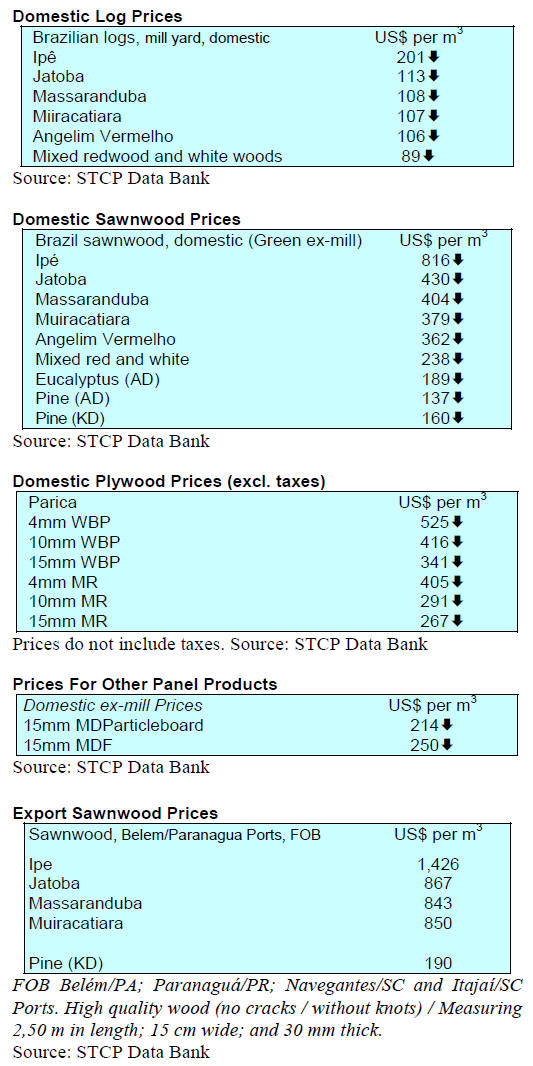
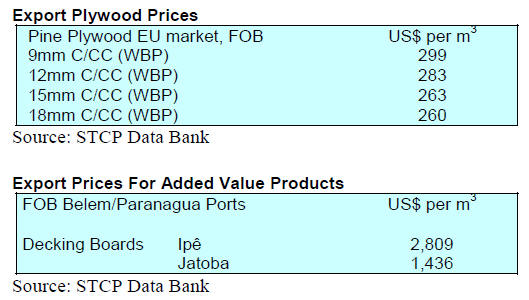
9. PERU
Export of builders’ woodwork
The export of builders’ wood work in the first four months
of the year reached US$2.6 million, 10% more compared
to the same period in 2018 as 2017 according to the
Association of Exporters (ADEX).
The increased shipments mirror recent growth in the US
housing market. Shipments to the US between January and
April increased by almost 42% year on year.
Other significant markets were Bolivia (US$150,360,
down 34%), Mexico (US$85,500, down 28%) and Panama
(US$78,460). Builders’ woodwork was also shipped to
Belgium, Dominican Republic, French Polynesia and
Spain.
Wood for construction represents 6.5% of the total
shipments of wood products from Peru ranked third
behind semi-manufactured products and sawnwood
surpassing others such as veneers, plywood, furniture and
its parts.
Builders woodwork shipped from Peru includes doors and
frames, counter frames and thresholds; wooden posts and
beams; wooden frames for paintings, photographs, mirrors
or similar objects; windows, shutters and their frames.
Congress approves economic incentives for forest
plantations
The Parliament has approved a law to encourage forest
plantations, mainly in the Amazon region of the country,
through economic incentives.
This initiative is part of the package of bills in support of
the Agrarian Commission. The President pointed out that
the proposed incentives are for the production and
protection of the ecological system and will benefit rural
communities.
The National Forestry and Wildlife Service (SERFOR)
will publish the beneficiaries of incentives, the amounts
granted as well as the forest species, areas and the
payments received.
Information system to verify the legal origins of wood
in Loreto
To promote the governance and competitiveness of the
forestry sector SERFOR and the Regional Government of
Loreto, with the support of the USAID Pro-Forests
Project, will coordinate the implementation of National
System Control Module Applications of Forest and
Wildlife Information (MC-SNIFFS), a tool that will
provide for the traceability and verification of timber
legality. The Loreto regional authorities will coordinate
with SERFOR to establish a transparent and open
management instrument for the wood value chain.
